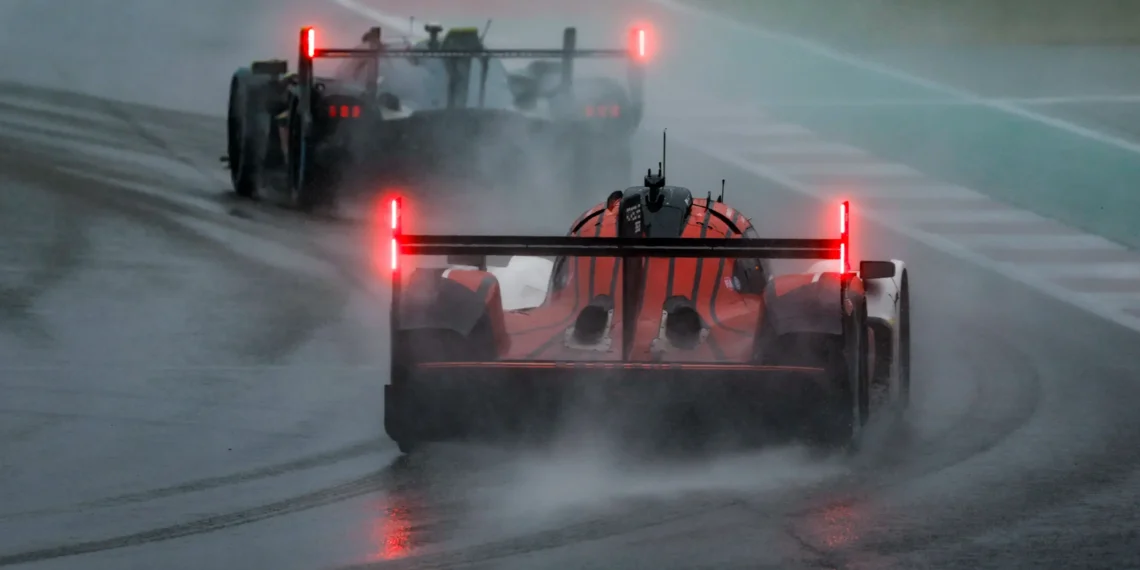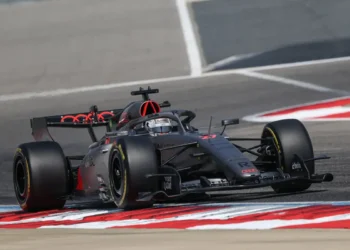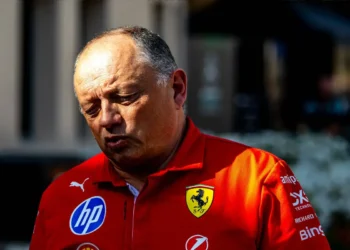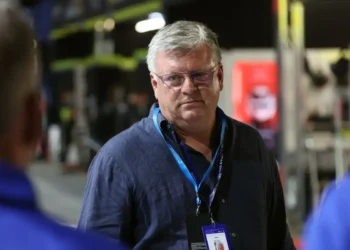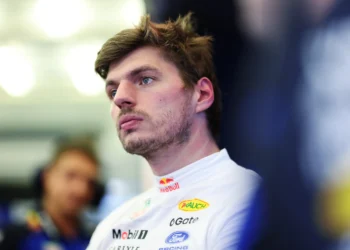Porsche’s Motorsport Future in Jeopardy: Is the Iconic Brand Cutting Back?
In a stunning revelation that has sent shockwaves through the motorsport community, Porsche has announced that no decisions have yet been made regarding its participation in the World Endurance Championship (WEC) and IMSA SportsCar Championship for the upcoming season. This comes amid rampant speculation about potential cuts to its ambitious factory program, raising alarm bells among fans and industry insiders alike.
Thomas Laudenbach, the head of Porsche Motorsport, refrained from confirming any details about the future of its LMDh program, which features the Porsche 963 racing under the Penske banner in both the WEC Hypercar and IMSA GTP classes. “I am not commenting on that, because the decision is not made — it is too early,” Laudenbach remarked, emphasizing that an official announcement will be forthcoming when the time is right.
However, the backdrop of this uncertainty is anything but favorable. Porsche is grappling with declining sales, exacerbated by the introduction of import tariffs in the United States and waning demand in China. In a bold move, CEO Oliver Blume previously outlined plans to slash the workforce by 10% by 2029, signaling a future where Porsche’s sales peak at 250,000 units, a stark contrast to the anticipated 300,000-plus in 2024.
Adding fuel to the fire, Porsche’s stock recently plummeted, causing the Volkswagen-owned brand to tumble out of the prestigious DAX index of blue-chip companies. Despite these economic pressures, Laudenbach insisted that decisions regarding the LMDh program would not solely hinge on financial factors. “There are a lot of influences there, and that is exactly the reason I cannot comment at the moment,” he stated, leaving many to ponder what other factors might be at play.
When pressed about the current state of the WEC, Laudenbach expressed dissatisfaction, acknowledging, “I think there are things we can improve in the series.” His comments highlight a growing frustration within the ranks, as he pointed to the need for improvements in competitive balance. In a veiled jab at the series’ Balance of Performance measures, he remarked, “We have seen a lot of results that are questionable.”
The stakes are undeniably high, especially as Porsche aims to defend the Hypercar drivers’ title secured by its star drivers Kevin Estre, Laurens Vanthoor, and Andre Lotterer in 2024. Laudenbach reflected on the team’s performance at the recent Le Mans 24 Hours, where the #6 Porsche Penske Motorsport entry, despite a near-flawless execution, settled for second place. “Second place is not bad if you look at the competition out there, but on the other side it did hurt because the #6 car was close to what I would call a perfect race,” he lamented.
Estre himself weighed in on the race’s results, suggesting that the 14-second gap to the winning Ferrari was misleading: “It looks close on paper, but that’s because they made a lot of mistakes – I’m not pretending we were in contention to win.”
With Porsche in the midst of its third season in both the Hypercar and GTP categories, launched simultaneously at the start of the 2023 seasons, the pressure is mounting. The brand, renowned for its racing pedigree, has yet to add to its illustrious record of 19 victories at Le Mans since returning to competition, making the stakes even higher as it navigates this turbulent period.
As the motorsport world watches with bated breath, the question remains: will Porsche commit to its racing legacy, or will it pull back from the limelight as financial pressures mount? Only time will tell, but one thing is certain – the motorsport landscape could be forever altered by Porsche’s next move.

